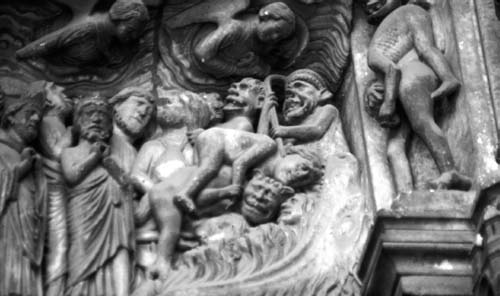ChristianityReligious Beliefs |
What are the main Christian notions of afterlife? |
Christian eschatology focuses on distinctive understandings of death, judgment, and consequential experiences called Purgatory, Heaven and Hell. First of all, death is not the end of life, but the beginning of a different mode of existence. Death is the doorway to a world beyond this. But since each person is responsible for his or her choices in life, there will be an accounting called Judgment. Immediately after death comes the Particular Judgment, of significance especially in Catholic theology. At that moment the individual becomes aware with utter clarity where he or she stands with God.
Depending on the situation, the state of the individual soul then changes to an experience of damnation, purification, or bliss. Individuals who have consistently chosen separation from God (a state called “mortal sin”) will then be granted their wish permanently, in Hell. Those whose lifelong choices have been tainted with self-will and ill intent (called “venial sin”) may need to experience a long but limited period of purification called Purgatory. Once cleansed of the last vestiges of self-absorption, these individuals will experience a change and be ready to enjoy the eternal presence of God. Those whom the Particular Judgment reveals to be in a “state of grace” are believed to move directly to the experience of the beatific vision, or Heaven, a state of eternal delight enveloped in divine love. All Christian theologies speak of a General Judgment, which will occur at the end of time at the Resurrection of the Dead. Then God will call all humanity to account and seal its fate for eternity.
Protestant reformers rejected both the notion of Particular Judgment and the intermediate state of Purgatory, teaching that only two possibilities, Heaven or Hell, awaited at the General Judgment. A further state known as “limbo” is reserved in some traditions for the unbaptized. Limbo is a rather neutral condition, lacking either suffering or supernal bliss, for all the righteous who lived before Christ, as well as for all infants who die without baptism.

Hell is depicted in the form of a giant serpent, opening its jaws as demons eagerly stuff the damned into its gaping maw, in a portal sculpture on the Gothic-style Cathedral of Chartres, France, twelfth century.
